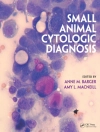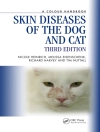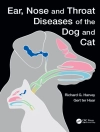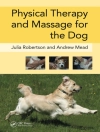Xie’s Chinese Veterinary Herbology serves as a practical guide to the theory and application of Chinese Herbal Medicine into veterinary practices. Divided into three parts, the book covers herbal materia medica used in treating various disorders and diseases, herbal formulas, and the clinical application of treatments. The book also outlines each herb’s history, the formulation of herbal recipes, energetic actions, indications and contraindications of each formula, dosages, and clinical and pharmacological studies performed with herbal treatments. This text serves as an invaluable reference to veterinarians looking to expand treatment options.
สารบัญ
UNIT ONE CHINESE HERBAL MATERIA MEDICA.
Chapter 1: Herbals To Tonify Qi, Blood, Yin And Yang.
Chapter 2: Herbals To Release The Exterior.
Chapter 3: Herbals To Transform Phlegm And To Relieve Cough & Asthma.
Chapter 4: Herbals To Clear Heat.
Chapter 5: Herbals To Warm The Interior.
Chapter 6: Herbals To Dispel Dampness.
Chapter 7: Herbals To Regulate (Stagnant) Qi.
Chapter 8: Herbals To Relieve Food Stagnation.
Chapter 9: Herbals To Stop Bleeding.
Chapter 10: Herbals To Invigorate Blood And Break Blood Stasis.
Chapter 11: Herbals To Stabilize And Bind (Astringents).
Chapter 12: Herbals To Open Orifices (Senses).
Chapter 13: Herbals To Calm Shen.
Chapter 14: Herbals To Extinguish (Endogenous) Wind And Stop Tremors.
Chapter 15: Purgative Herbals.
Chapter 16: Herbals To Expel Parasites.
Chapter 17: Herbals For External Application.
.
UNIT TWO CHINESE HERBAL FORMULATION.
Chapter 18: Herbal Formulas To Tonify Qi, Blood, Yin And Yang.
Chapter 19: Herbal Formulas To Release The Exterior.
Chapter 20: Herbal Formulas To Transform Phlegm And To Relieve Cough & Asthma.
Chapter 21: Herbal Formulas To Clear Heat.
Chapter 22: Herbal Formulas To Warm The Interior.
Chapter 23: Herbal Formulas To Dispel Dampness.
Chapter 24: Herbal Formulas To Regulate (Stagnant) Qi.
Chapter 25: Herbal Formulas To Relieve Food Stagnation.
Chapter 26: Herbal Formulas To Stop Bleeding.
Chapter 27: Herbal Formulas To Invigorate Blood And Break Blood Stasis.
Chapter 28: Herbal Formulas To Stabilize And Bind (Astringents).
Chapter 29: Herbal Formulas To Open Orifices (Senses).
Chapter 30: Herbal Formula To Calm Shen.
Chapter 31: Herbal Formulas To Extinguish (Endogenous) Wind And Stop Tremors.
Chapter 32: Purgative Herbal Formulas.
Chapter 33: Herbal Formulas To Expel Parasites.
Chapter 34: Herbal Formulas For External Application.
UNIT THREE CLINICAL PRACTICE OF CHINESE HERBAL MEDICINE.
Chapter 35: Introduction to Chinese herbal Medicine; Definition of CHM, si-qi and wu-wei, preparation, storage, general dosage.
Chapter 36: Patent Chinese Herbs Available for Western Veterinary Practice.
Chapter 37: Toxicology and safety control.
Chapter 38: Clinical application of Chinese Herbal Medicine for Horses: overview.
Chapter 39: Clinical application of Chinese Herbal Medicine for companion animals
เกี่ยวกับผู้แต่ง
Huisheng Xie received his DVM at the Sichuan College of
Animal Science and Veterinary Medicine in Sichuan, China. He was an
assistant and staff veterinarian in the College of Veterinary
Medicine of the Beijing Agricultural University. After receiving
his master of veterinary science in veterinary acupuncture, he was
assistant and associate professor in the Beijing Agricultural
University College of Veterinary Medicine. He received advanced
training in human acupuncture at the Beijing College of Traditional
Chinese Medicine and the National Academy of Traditional Chinese
Medicine, and later earned his Ph D from the University of Florida
for investigation of the mechanisms of pain control in horses using
acupuncture. Currently, he is clinical assistant professor and
director of the acupuncture internship training program in the
College of Veterinary Medicine at the University of Florida. Dr.
Xie is founder of the Chi Institute in Reddick, Florida, which
trains veterinarians in Chinese acupuncture and herbal medicine
(www.tcvm.com). He has received achievement awards from the
Ministry of Agriculture, the National Science and Technology
Committee, the Beijing Agricultural University, Nihon University
(Japan), University of Mexico (Mexico), and China National Society
of TCVM. He speaks internationally on veterinary acupuncture and
herbal medicine, and is the author of numerous books and papers.
His textbooks include Traditional Chinese Veterinary Medicine
and Traditional Chinese Veterinary Medicine, Volume 1, Fundamental
Principles.
Vanessa Preast received her DVM from the University of
Florida in 2000. As a graduate of the Chi Institute, she became
certified in small animal acupuncture. She incorporated acupuncture
into her practice of small animal medicine and surgery. Currently,
she is a doctoral student in teaching and learning. She coauthored
and edited Traditional Chinese Veterinary Medicine and
Traditional Chinese Veterinary Medicine, Volume 1, Fundamental
Principles.












